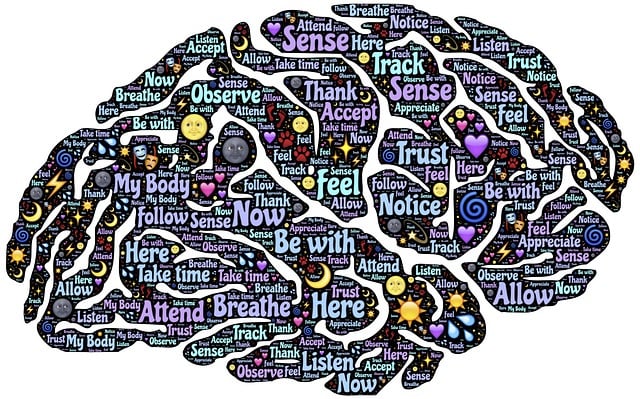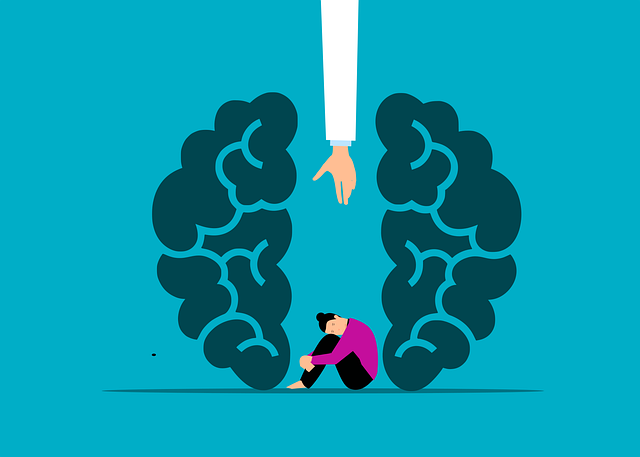Anxiety among elderly Mandarin-speaking individuals is a significant, often overlooked issue due to cultural barriers. Specialized mental wellness coaching programs addressing this challenge blend traditional therapy with understanding of Mandarin culture and language. Techniques like Cognitive Behavioral Therapy (CBT) target unique anxiety issues through thought pattern changes, mindfulness practices, and emotional intelligence development. Mindfulness and meditation are effective, culture-sensitive therapies for social anxiety. Promoting healthy lifestyle habits, such as exercise, balanced diet, and sleep, along with professional support tailored to Mandarin-speaking seniors' needs, enhances their ability to manage anxiety and improve quality of life.
Managing anxiety effectively is essential for the well-being of elderly Mandarin-speaking individuals. This article explores tailored strategies to address this common mental health concern among this demographic. We delve into understanding the unique challenges faced by elderly Mandarin speakers, focusing on Anxiety in the context of cultural considerations. Subsequent sections discuss evidence-based approaches like Cognitive-Behavioral Therapy (CBT), mindfulness practices, and lifestyle adjustments designed to offer practical solutions for improved mental health support within this community.
- Understanding Anxiety in Elderly Mandarin Speakers
- Cognitive-Behavioral Therapy (CBT): A Tailored Approach
- Mindfulness and Meditation Techniques for Calmness
- Lifestyle Adjustments for Better Mental Health Support
Understanding Anxiety in Elderly Mandarin Speakers

Anxiety among elderly Mandarin-speaking individuals is a significant concern, often overlooked due to cultural barriers and language differences. Many elders in this community may face unique challenges when it comes to expressing and understanding their emotions, particularly if they have limited access to mental health services tailored to their linguistic and cultural needs. In the context of therapy for elders Mandarin Chinese speaking, specialized approaches are crucial.
Mental wellness coaching programs designed with a focus on development of inner strength and application of mind over matter principles can be transformative. These programs, delivered by trained professionals who are sensitive to cross-cultural dynamics, offer a safe space for elderly Mandarin speakers to explore and manage their anxiety. By combining traditional therapy methods with an understanding of the Mandarin culture and language, these initiatives aim to enhance communication, foster inner peace, and improve overall mental wellness.
Cognitive-Behavioral Therapy (CBT): A Tailored Approach

对于老年讲普通话的群体来说,认知行为疗法(CBT)是一种有效的焦虑管理方法。这种疗法专注于识别和改变不健康的思维和行为模式,从而减轻焦虑症状。CBT 通过帮助患者理解他们的思想和情绪之间的联系,并培养更积极、现实的思考方式来实现。对于老年人来说,这可能尤其有益,因为它可以提高他们应对日常压力和挑战的能力。
CBT 提供了一种量身定制的方法,以解决老年人的独特焦虑问题。通过结合对话疗法和实践活动,如正念冥想和情绪智能练习,患者可以学习管理他们的焦虑反应。正念冥想有助于培养当下意识,减少对过去或未来的过度担忧。同时,增强情绪智能可以改善与他人的交流和人际关系,从而减少社交焦虑。这种综合的方法确保了治疗过程针对个体的需求和偏好。
Mindfulness and Meditation Techniques for Calmness

在管理焦虑时,正念和冥想技巧已经成为许多老年人寻求内心平静的有效疗法。这些实践鼓励专注于当下时刻,无评判地观察思绪和感受。通过定期练习,可以帮助老年人减轻焦虑症状,提升整体福祉。
正念和冥想技术多种多样,包括深呼吸练习、身体扫描和引导性冥想。例如,社区外展计划实施的压力管理课程经常引入这些技巧,以支持经历过创伤或日常压力的人群。这些疗法不仅促进放松,还能增强应对策略,帮助老年人更好地管理焦虑,提升生活质量。
Lifestyle Adjustments for Better Mental Health Support

保持健康的生活方式是管理焦虑的重要组成部分,尤其对老年人而言。定期运动、均衡饮食和充足睡眠都是提升心理健康的关键因素。例如,轻度到中度的有氧运动可以释放内啡肽,改善情绪和减轻压力。同时,与语言背景相关的传统疗法,如中医或针灸,也被证明对缓解焦虑有效。这些方法不仅能提供身体上的放松,还能触及个人的文化根源,从而在心理层面得到支持。
此外,培养良好的日常习惯也有助于提升自尊心和应对能力。设定可实现的目标、练习正念冥想和保持社交互动都能增强个人的应对力。在寻求专业帮助时,选择一个具备中文化竞争力的医疗服务提供者,他们能更好地理解和尊重患者的文化背景和需求,从而提供更个性化的治疗方案。通过结合这些生活方式调整和专业支持,老年人能够更好地管理焦虑,提升整体生活质量。
Anxiety management is a vital aspect of mental health care, especially for elderly Mandarin-speaking individuals. By understanding their unique challenges, such as cultural barriers and language difficulties in accessing traditional therapy, tailored approaches can be implemented. Cognitive-Behavioral Therapy (CBT) has proven effective when adapted to suit their needs, while mindfulness practices offer a calming approach. Additionally, lifestyle adjustments like regular exercise and dietary changes can significantly support mental well-being. For elderly Mandarin speakers seeking therapy, combining these techniques can lead to improved anxiety management and enhanced quality of life.











